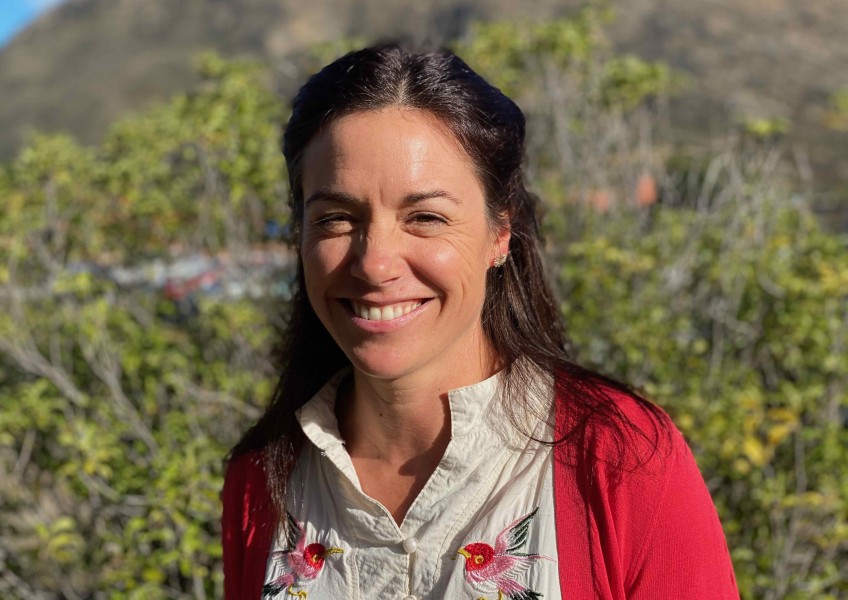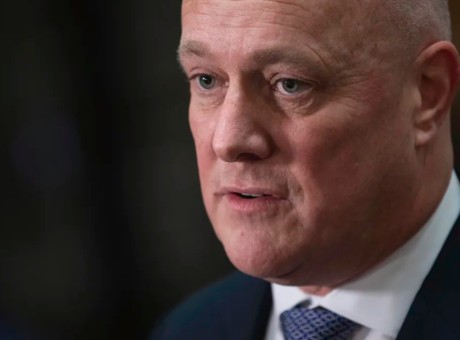Esther Whitehead: 'Spouting popular rhetoric is great but it’s rarely original'

Esther Whitehead is a Queenstown Lakes District councillor. She's seeking re-election in the Queenstown-Whakatipu ward.
Opinion
What will our next job be? Which leaders will best serve our collective future? Will my child still be living with me when they’re 32? We’re all forecasters, so what’s the secret to good judgement and how can we practice it now in local body elections?
It turns out that we’re not the best predictors on the whole, highlighted in the book Expert Political Judgement where the author found that overall, subjects weren’t accurate forecasters, but a subset did perform better than the rest. Those people stood out not for their credentials, ideology or book smarts but for their style of thinking. Good forecasters do the things listed below. These are the people you need to vote for, and these five tips may also help you cast your vote.
Most election interviews tend to ask councillors and mayors, what their vision is and how they will do it. Spouting popular rhetoric is great but it’s rarely original and it’s important that we can see how a representative of our council can move the dial in the direction we want. My view is that they don’t yet know with any certainty how they’d do it, nor should they. Having plans and ideas is good but rushing into them may not be. If they had all the solutions they wouldn’t need to be a councillor or mayor, because their expertise would be in VERY high demand everywhere and councils would be first in line to receive it.
My five top tips are these:
- Reject the idea that a single-force will result in a single outcome - for example, it’s not all about the mayor. They need to listen, not overly rely on their dominant vision. Councillors are really important to create the direction we’re looking for.
- Be allergic to certainty - there is no longer any certainty in the world (sorry!). Councillors and mayors who recognise this will be far more prepared for any eventuality and will design assumptions that don’t put us in a high-risk situation.
- Don’t be fooled by ‘Strong Leadership’ - often a euphemism for authoritative leadership. We need servant leadership, someone who gives weight to multiple perspectives and isn't afraid to seek support. They are curious, have intellectual humility, they’re self-critical, and have integrity. Look for true servant leadership in their backgrounds.
- We are never ‘100 percent confident’, look for those who update their beliefs as new information becomes available. When someone is 100 percent confident in themselves, perhaps we should receive their confidence with caution.
- Do they ask questions, do they show they want to learn? Why do so many hold back on this? They could be egocentric - eager to impress listeners with their own thoughts, stories, and ideas (and not even think to ask questions). They may be overconfident in their own knowledge and think they already have all the answers (which sometimes they do, but usually not). Perhaps they worry that they’ll ask the wrong question and be viewed as rude or incompetent. But the biggest inhibitor, in my opinion, is that most people just don’t acknowledge how beneficial good questioning can be. If they did, they would end far fewer sentences given with a full stop—and far more with a question mark. Don’t you agree?
I’m hopeful that you vote me in as a councillor on the Whakatipu-Queenstown ward, and I am hopeful that I work with colleagues who practise active open mindedness. The best forecasters view their own ideas as hypotheses to test rather than only trying to convince others to agree with them. They’re looking to benefit the greater good. Using this approach is about getting others to test their own thinking too and to practise humility rather than being attached to their ideas by ego or belief frameworks.
I’ve seen divisive behaviour around board tables and I think we could all learn from focusing on how we think, how we question and how we build consensus. This, of course, extends to the community voice. How we ask our communities to be involved is currently exclusive rather than inclusive, we give tight deadlines, limited options, lengthy documents, and policies or projects which have ‘gone too far’ to change direction on. Ironically this is how most current councillors feel about Three Waters - ‘it’s being done to us’ they say, much as councils do to their own constituents. It seems some around the table can’t see the irony in that.
I found that whilst I may have been heard in the last term, I think my views were rarely included in any formal way that meant action could be carried out, and I was witness to other councillor voices also being excluded. I stand to try to change ‘old’ ways of working and looking for other advocates around the table to support this change. Any mayor or councillor who has a deep respect for others and for demonstrating true collaboration will get my vote. I am excited to serve our community as part of a collaborative team - I believe we can be more inclusive to our community voice and that’s why I am standing.
You voted Esther Whitehead in as a councillor to QLDC on June 11 last year. I have cast all my votes with climate adaptation in mind. I'm not a one trick pony - I understand that councillor decisions need to be made out of an understanding that economic planning is reliant on ecological limits. It’s all encompassing. Each time we cast a vote on housing developments, roads, water, transport etc, we need to ask, what does that look like for our investments, our debt, our risks, our enabled and embodied carbon, our ability to protect biodiversity, our community wellbeing now and future generations?
Feel free to contact me on 021 2430741.

























